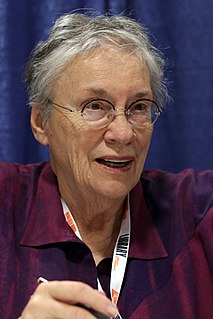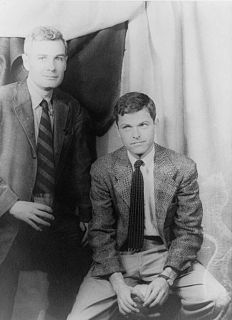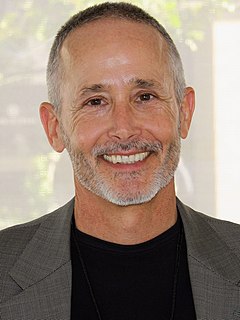A Quote by Annie Proulx
What I find to be very bad advice is the snappy little sentence, 'Write what you know.' It is the most tiresome and stupid advice that could possibly be given. If we write simply about what we know we never grow. We don't develop any facility for languages, or an interest in others, or a desire to travel and explore and face experience head-on. We just coil tighter and tighter into our boring little selves. What one should write about is what interests one.
Quote Topics
Related Quotes
The most common thing I find is very brilliant, acute, young people who want to become writers but they are not writing. You know, they really badly want to write a book but they are not writing it. The only advice I can give them is to just write it, get to the end of it. And, you know, if it's not good enough, write another one.
Sometimes I find it tiresome to write actions and describe the scene in a very intricate way so that every crew member understands where we are going - that I can find a little bit long and tiresome. But dialogue is just all my life. There's no way I could ever be challenged, not challenged, but I'm always so happy to write dialogue.
The single best piece of advice I give to aspiring writers is to always write about things that they know. I suggest that they write about people and places and events and conflicts they are familiar with. That way their writing will be real and hopefully readers will respond to it. I try to take my own advice.
The only piece of advice I've ever given anybody is learn to write songs and write as many songs as you can. Because it's never gonna hurt, and when you run into that problem of, 'God, I don't know what I want to say,' or the opposite problem of, 'I know exactly what I want to say, but no one has written it,' then you can just go write it yourself.
But sometimes when I was starting a new story and I could not get it going, I would sit in front of the fire and squeeze the peel of the little oranges into the edge of the flame and watch the sputter of blue that they made. I would stand and look out over the roofs of Paris and think, 'Do not worry. You have always written before and you will write now. All you have to do is write one true sentence. Write the truest sentence that you know.' So finally I would write one true sentence, and then go on from there.
You're part of the human fabric of experience. You don't have to have cancer to write about cancer. You don't have to have somebody close to you die to understand what death is. Definitely, the more you live, the more experiences fall into your spectrum. As a writer, you must have been told: Write about what you know. But Kafka didn't. Gogol didn't. Did Shakespeare write only what he knew? Our own selves are limitless. And our capacity for empathy is giant.
I could never write about the sort of people John Cheever or John Updike or even Margaret Atwood write about. I don't mean I couldn't write as well as they do, which of course I couldn't; they're great writers, and I'm no writer at all. But I couldn't even write badly about normal, neurotic people. I don't know that world from the inside. That's just not my orientation.
If anyone e-mails you something "by George Carlin," there's a 99 percent chance I did not write it. I didn't write "Paradox Of Our Time." I didn't write "George Carlin On Aging." I didn't write a eulogy for my wife after she died. I didn't write the New Orleans thing. I didn't write "I Am A Bad American." None of them. You know what I've decided to do? I'm going to get a little cheap put-it-together-yourself website called NotMe.com.
Not write what you know, but know what you write. If you write about a world before, after, or other than this one, enter that world completely. Search it to find your deepest longings and most terrible fears. Let imagination carry you as far as it may, as long as you recount the voyage with excitement and wonder. But this is the most important rule: write the book you most long to read.






































